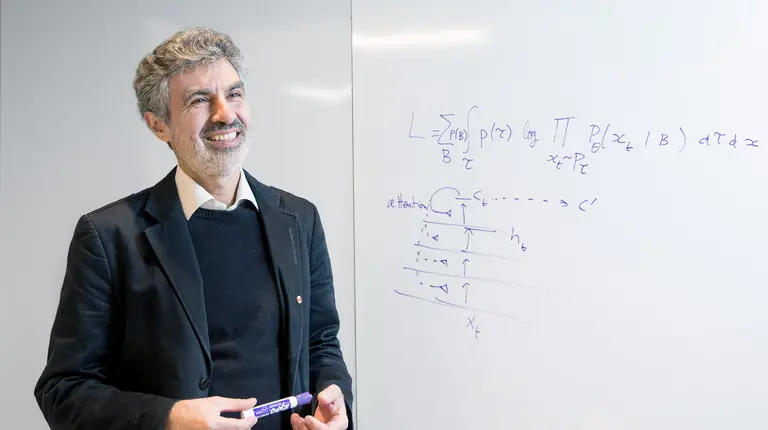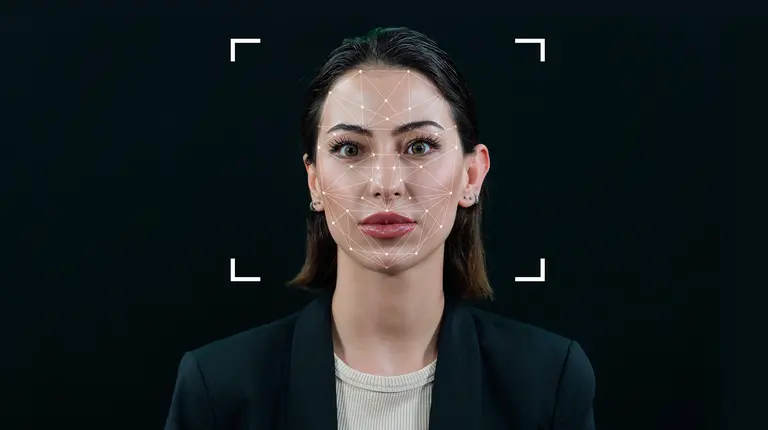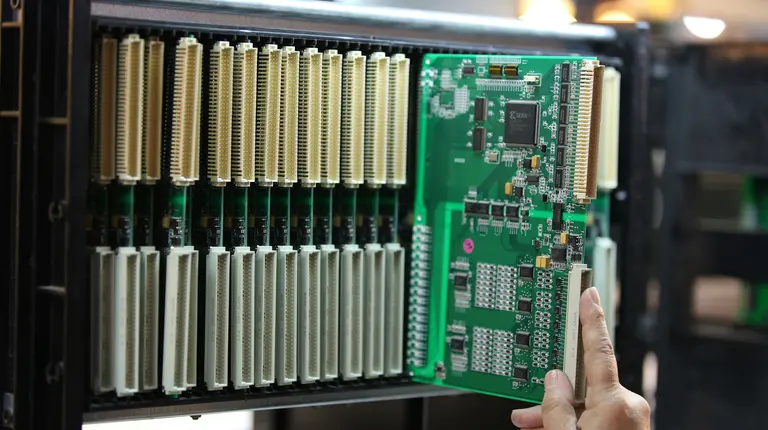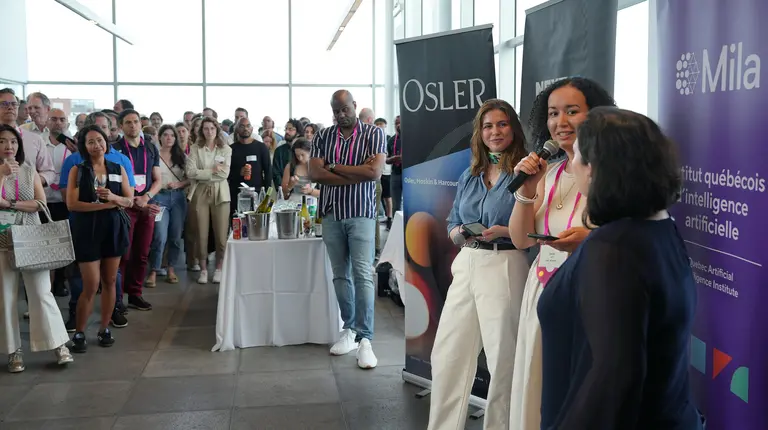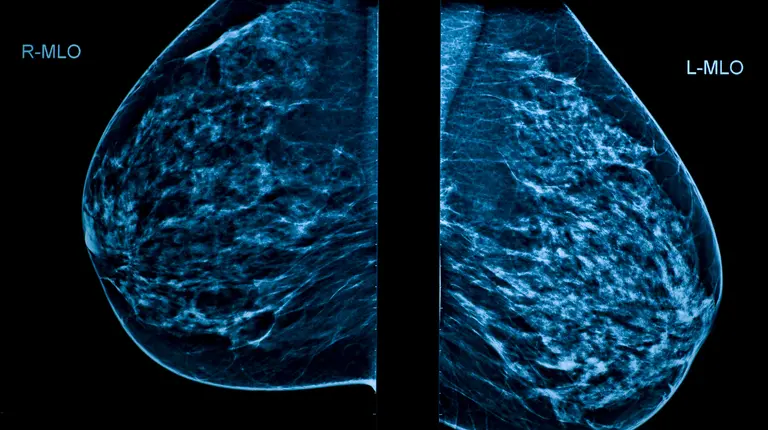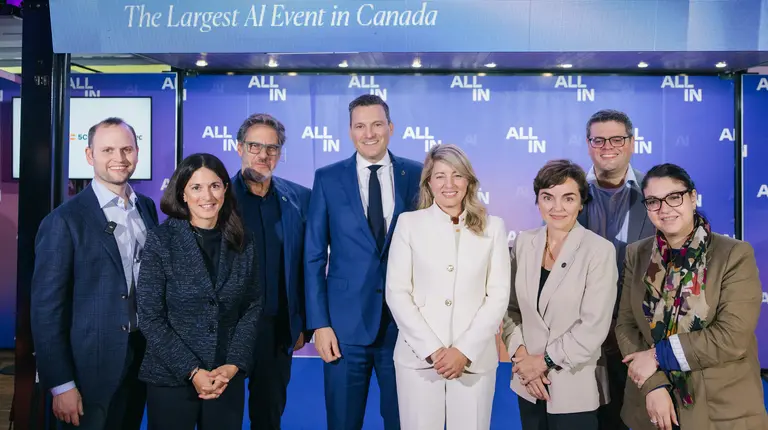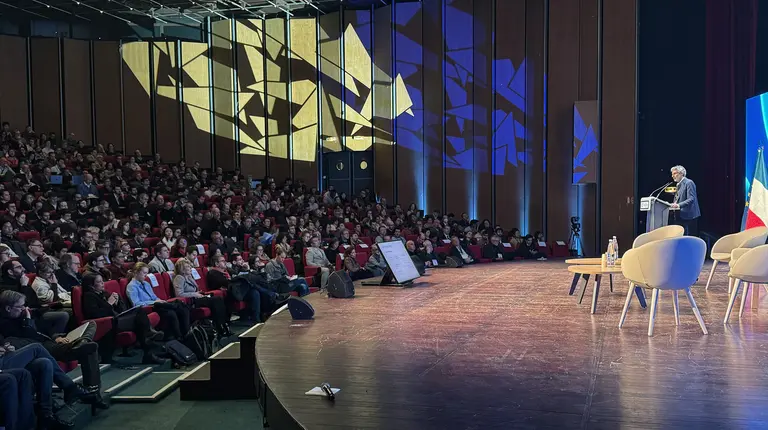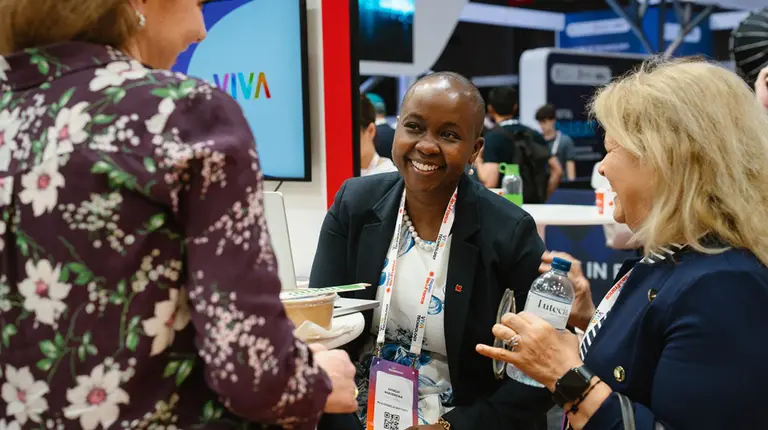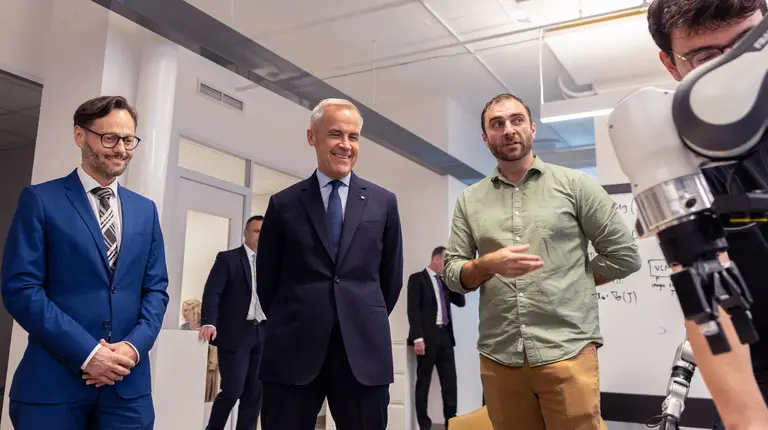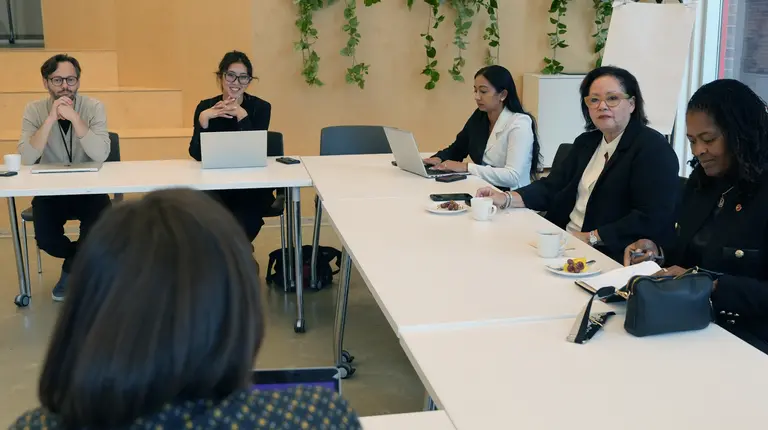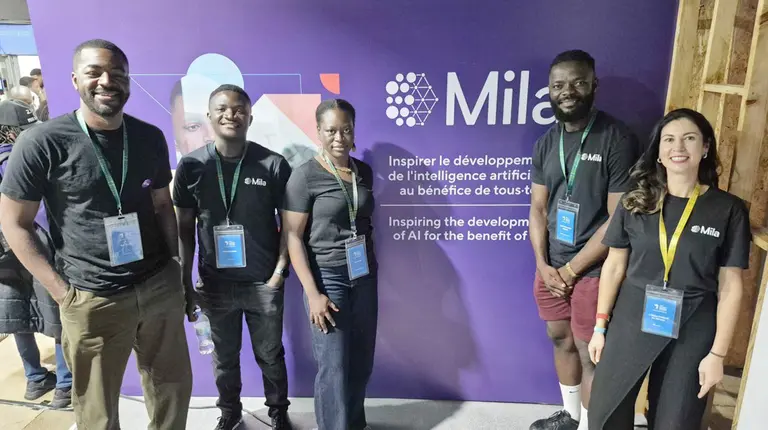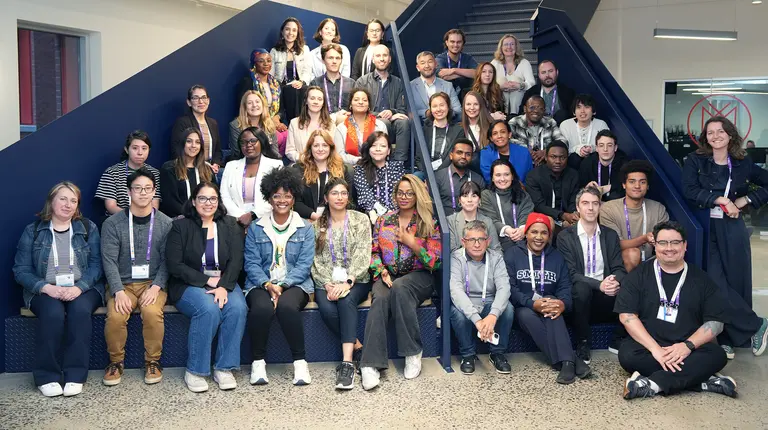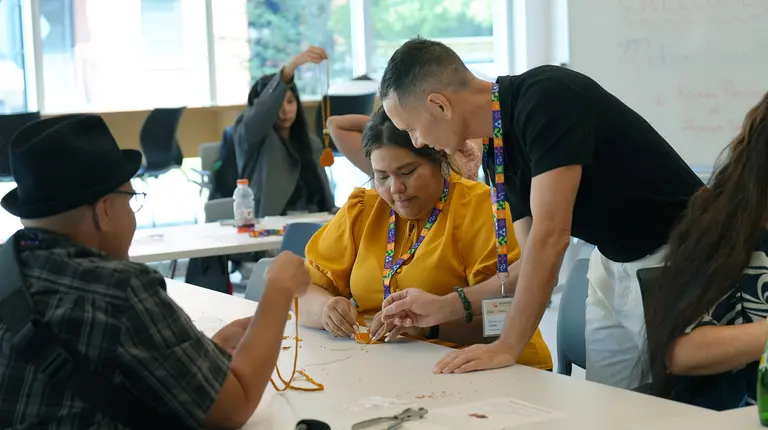
Leading
in a New Era
Impact Report 2024-2025
This Impact Report comes at a pivotal moment in the evolution of artificial intelligence. Amid a rapidly shifting global landscape, we are witnessing not merely a period of change, but a true change of era. This transformative moment calls for both thoughtful reflection and decisive action: fostering bold experimentation while strategically building on the strong foundations we have already established.
Born from a unique collaboration between the Université de Montréal and McGill University, Mila continues to deliver world-class research with tangible, real-world impact. Over the past year, our teams have achieved remarkable breakthroughs, developing more efficient and accessible language models, exploring innovative methods for autism diagnosis, and advancing explainable generative models in medical imaging, among other achievements. While leading the launch of LawZero in Canada, Mila also remained active on the global stage, contributing to the first International AI Safety Report and supporting the UN's initiative to establish an Independent International Scientific Panel on AI. Collectively, these milestones reinforce our mission to pursue cutting-edge science with tangible economic and societal impact, while upholding Canada’s leadership in AI at a time when the federal government is placing artificial intelligence at the core of its national vision.
Looking ahead, our focus is clear: turning vision into action. We will accelerate the translation of research into practical applications by expanding initiatives that empower researchers to turn their scientific findings into new Canadian ventures, bridging the gap between discovery and impact. At the same time, we will strengthen a comprehensive approach to AI literacy that combines technical expertise with critical reflection on AI’s broader societal role. With 2026 as our strategic horizon, we are preparing to implement the key initiatives that will define Mila’s next chapter and strengthen our global impact.
We invite you to explore this report as both a testament to our progress and a window on the transformative journey ahead.

Valérie Pisano
President and CEO

Hugo Larochelle
Scientific Director

Pierre Boivin
Chairman of the Board
ALL IN 2025, Canada’s largest AI event, took place in Montréal on September 24–25. Co-organized by Scale AI and Mila, the event attracted over 6,500 attendees from more than 40 countries and featured over 200 speakers, providing a unique platform to examine AI’s role across society and business.
With a delegation of over 50 employees and seven participating speakers, Mila played a prominent role in this latest edition, spearheading discussions on AI’s transformative potential and engaging participants on the future of responsible AI. Moreover, it provided a valuable opportunity for our leadership team to hold strategic meetings with provincial and federal government officials, including Mélanie Joly, Minister of Industry and Minister responsible for Canada Economic Development for Quebec Regions, Evan Solomon, Minister of Artificial Intelligence and Digital Innovation, and Christine Fréchette, Quebec Minister of Economy, Innovation and Energy.
The event also brought Mila’s full spectrum of influence to life with an immersive installation that visually showcased its eight key areas of impact, reflecting both the Institute’s world-class expertise and its broader contributions driven by cutting-edge AI research:
1.
Scientific breakthroughs:
unlocking the potential that will fuel the intelligent systems of tomorrow.
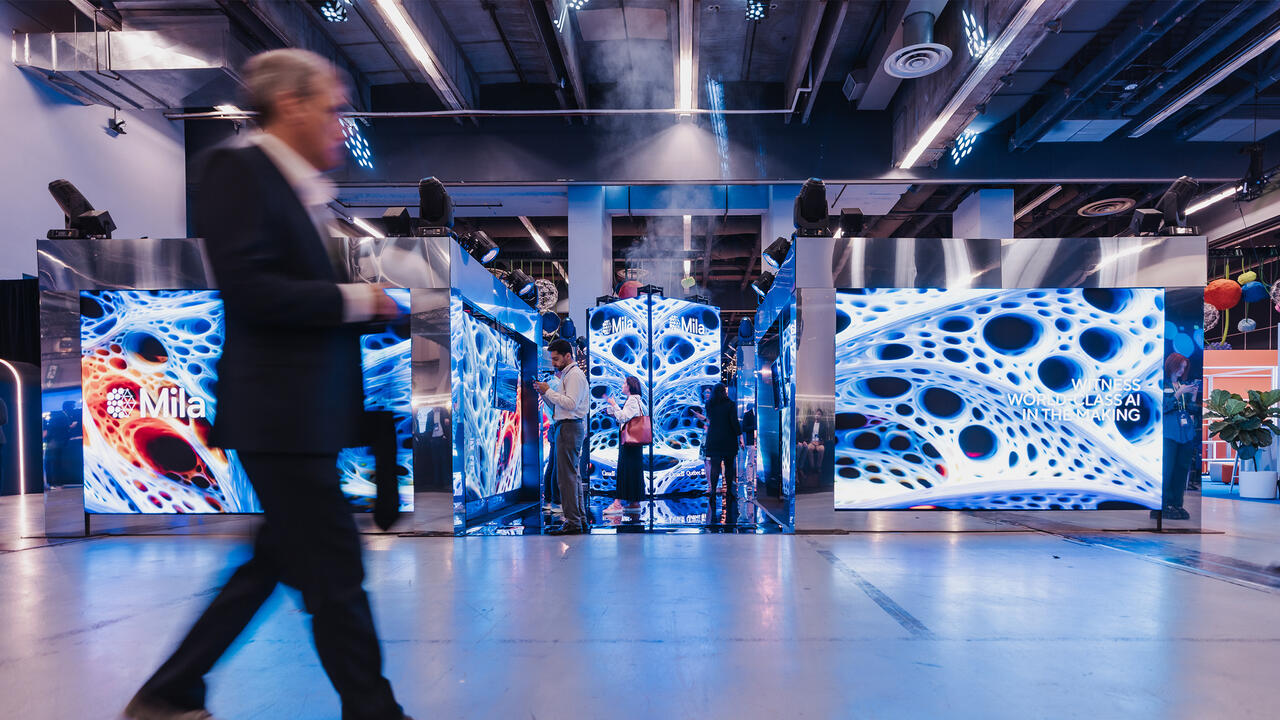
2.
Trustworthy models:
ensuring AI systems are reliable and safe in our rapidly changing world.

3.
Sustainable technology:
pioneering energetically sustainable models, hardware, and the compute of the future.
4.
Economic prosperity:
converting research into new ventures, innovation and productivity.
5.
Generational challenges:
tackling some of society's most pressing problems with transformative solutions.
6.
Citizenship and society:
empowering a future that serves human flourishing and empowerment.
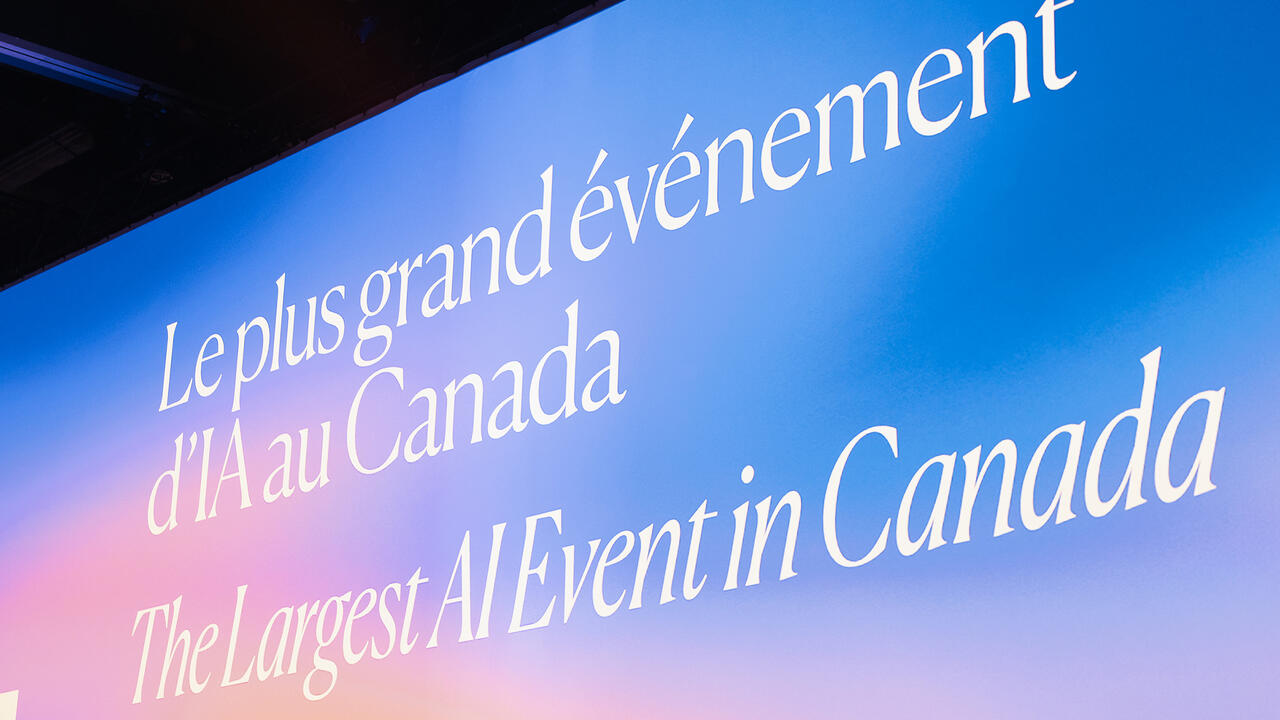
7.
AI by and for all:
broadening research and participation to make AI accessible and culturally representative.

8.
Global diplomacy:
enabling international alliances and global AI governance.
This year marked a strategic turning point in Mila’s scientific leadership, bringing new perspectives to guide our next phase of research and broaden our impact.
In March 2025, our founder Yoshua Bengio announced his decision to step down as Mila’s Scientific Director and move into the role of Scientific Advisor. This change enables him to devote greater focus to his critical research in AI safety and to high-level global policy initiatives, a commitment already demonstrated through his work with the newly launched LawZero initiative, unveiled in June. We extend our deepest thanks to Yoshua for his visionary leadership and his extraordinary contributions to Mila and the broader AI community.
To support this transition, Laurent Charlin stepped in as Interim Scientific Director from April to September. His steady leadership and thoughtful guidance were instrumental in ensuring continuity and momentum during this period of strategic restructuring.
In September, we were proud to welcome Hugo Larochelle as Mila’s new Scientific Director. A trailblazer in deep learning, a longtime member of the Mila community, and a former student of Yoshua Bengio, Hugo brings both academic depth and industry experience, having most recently led Google’s AI research lab in Montréal. His appointment ushers in an exciting new chapter in Mila’s scientific journey.
This year, our world-renowned research community achieved fundamental breakthroughs across critical domains, from advancing AI safety, reducing hallucinations, and countering misinformation to pioneering applications in climate action, healthcare, and biodiversity.
We also helped strengthen the broader AI ecosystem by developing and sharing key research infrastructure. The outstanding work of our community continues to be recognized through numerous prestigious awards and honours.

197
Faculty members
Over the past year, Mila has welcomed 42 new faculty members, a growth of 24%.
1,222
Student researchers
As of October 2025, Mila had more than 1,200 student researchers in its community.
657
Research projects
Mila-affiliated faculty members continue to be highly engaged in research, with over 650 projects currently underway.
725
Peer-reviewed articles
Mila researchers have published over 700 peer-reviewed articles since last October. Among these, more than 180 were accepted at the main conferences of the three major annual AI research events: NeurIPS 2024, ICLR 2025 and ICML 2025.
474
Scholarships
The number of scholarships awarded to Mila students since last year, for a total value of more than $9 million.
14
CIFAR Chair renewals
Over the past year, 14 of our faculty members have been reappointed as Canada CIFAR AI Chairs, a cornerstone of the Pan-Canadian AI Strategy. One faculty member was also newly appointed to the Chair program.
Highlights
This year, Mila continued to translate cutting-edge research into meaningful economic and societal impact, reinforcing Canada’s AI value chain and global competitiveness.
We accelerated AI adoption through expanded industry partnerships, enhanced support for entrepreneurship with our accredited Entrepreneurship Lab (eLab), and strategic initiatives such as the $250 million Sovereign AI Research Hub.
We also launched the Impulse Program, providing Canadian startups with subsidized access to world-class AI expertise through focused R&D sprints, accelerating innovation and strengthening Canada’s AI ecosystem.

382
Projects
In the last fiscal year, Mila’s AI adoption initiatives led to 382 projects and engagements, positively impacting 227 organizations across various sectors.
49
New partners
Mila welcomed 49 new partner organizations to its community, bringing the total number of partners to 176.
12
New Mila startups
Mila supported the growth of 12 new startups, expanding its network to 53 startups founded by Mila researchers.
100+
Internships
More than 100 Mila students completed industry internships in the past year.
40+
SMEs advised
Mila provided advisory services to more than 40 innovative Canadian SMEs, with financial support from the National Research Council of Canada’s Industrial Research Assistance Program (NRC IRAP).
Highlights
This year, Mila reaffirmed its leadership as a global force shaping the responsible evolution of artificial intelligence.
We advanced the international conversation on AI governance by chairing the inaugural International AI Safety Report and launching LawZero to drive the development of inherently safer AI systems.
Through bold initiatives like the AI Policy Fellowship and sustained engagement with global decision-makers, Mila continues to bridge science and policy — helping to build a shared framework for ethical, transparent, and human-centred AI worldwide.

$2M
Funds secured
In the past year, nearly $2 million in donations was secured to propel Yoshua Bengio’s global leadership in AI safety, public policy, and risk mitigation.
13
AI Policy Fellows
Mila’s inaugural AI Policy Fellowship pairs 13 experts from academia, industry, government, and civil society with Mila researchers to bridge the gap between AI research and policymaking.
20+
Organizations supported
Since its inception in 2024, the AI Insights for Policymakers Program (a joint initiative with CIFAR) has helped over 20 public and civil society organizations navigate complex AI policy issues.
Highlights
This year, our commitment to AI education and collaboration empowered thousands of learners to strengthen their skills across diverse fields.
We continued to build a vibrant and globally connected research community, welcoming new members and expanding our reach.
Our dedication to inclusive excellence drove targeted initiatives such as the AI4Good Lab and the Indigenous AI Gathering, fostering equitable participation and cultivating the next generation of talent shaping the future of responsible AI.

9,677
Learners reached
Over the past year, 9,677 learners participated in Mila-led programs and conferences promoting responsible AI.
1st
Indigenous AI Gathering
In June, Mila hosted its first Indigenous AI Gathering, with 170+ guests exploring AI through Indigenous values and traditional knowledge.
95
Participants in inclusion programs
Over the past year, Mila welcomed close to 100 participants to programs supporting the success of underrepresented groups in AI.
7
Sustainability Scholarships
Mila awarded 7 scholarships to emerging researchers in AI and climate science as part of the inaugural edition of its Sustainability Scholarship Program.
300+
New Mila members
Over the last fiscal year, more than 300 new researchers and collaborators joined the Mila community.
66%
International students
Mila’s role as a global hub for AI research is reflected in the diversity of its student body, with 66% coming from outside Canada.
Highlights

Financials
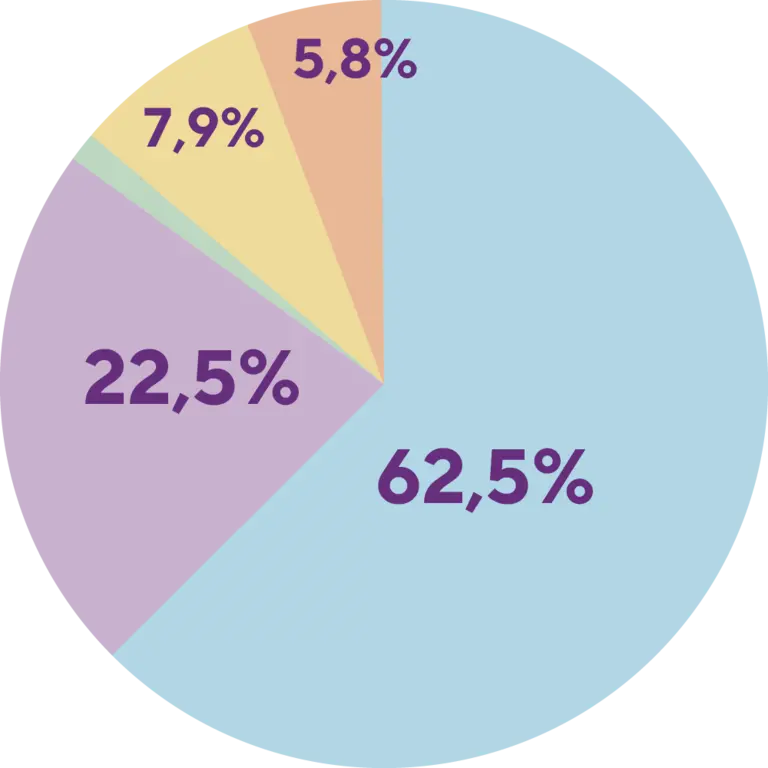
- Government grants
- Industry contracts
- Leasing
- Other
- Amortization of deferred contributions related to tangible capital assets
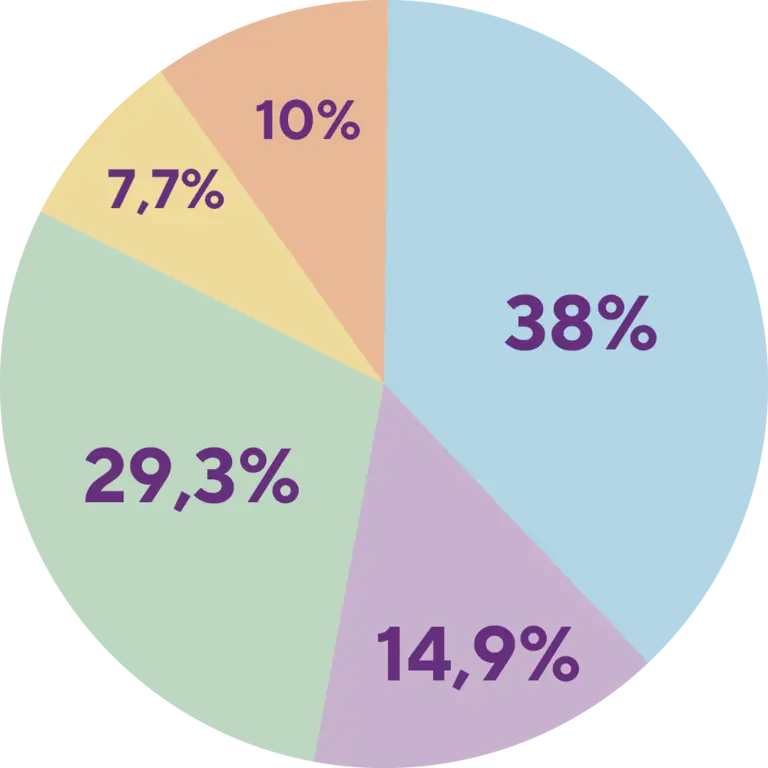
- Research
- Research support, innovation and computing power
- Projects, industry relationships and training
- Amortization of tangible capital assets
- General administration
The charts above exclude the expenditures related to the special project LawZero, totaling $2,553,857, as well as the corresponding revenues.



